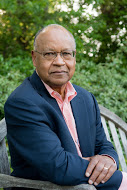By Ray Anthony Shepard
 Being a biographer for young readers who writes about Black lives in America is a conundrum that goes beyond a writer’s normal anxieties. Let me count the ways:
Being a biographer for young readers who writes about Black lives in America is a conundrum that goes beyond a writer’s normal anxieties. Let me count the ways:
- African American authors such as Jacqueline Woodson, Tracy Smith, and Jerry Craft rightfully warn that Black children need more than stories about slavery, civil rights, and police brutality.
- Young readers of all stripes and colors are tired of books centered in this terror triangle—enslavement, social and political justice, and blue mendacity—stories that leave readers feeling like a victim or a perpetrator.
- Writers of children’s biographies strive to offer a big win, a meaningful lesson, a promise of a better tomorrow. This is a challenge for both the writer and reader, stuck in a race war that has raged for four centuries and shows no signs of ebbing.
- And because of the need for hope, young readers intuitively sniff the con-on-the-page compared to their real-life experiences.
Young readers suffer through 13 years of anodyne lessons about American exceptionalism, but in school they see the “N” word scratched on bathroom stalls, hear classmates mock MLK Day as Martin Luther Koon Day. And, at home, Black youths have had “the talk” with their parents: how to behave when stopped by police—hands on the steering wheel, polite answers laden with sir and officer, and always request permission to reach for their driver’s license and car registration. They know they experience the sham from the schoolhouse to the White House.
They know their grandparents’ disappointment with the results of the civil rights movement, they’ve witnessed their parent’s disillusionment with a post-racial America, and they see the double standard of white and Black behavior in our last two presidents.
Young readers set a high bar for biographies to prove that Black Lives Matter.
Those of us who are blessed to write biographies of African Americans have no choice but to step into the terror triangle because there are no Black lives untouched by American racism. If we are to write an authentic biography and one that gives children a sense of hope, we have to strip bare the historical untruth that is at the heart of being Black in a white nation. We have to show the lives of those who have stared down the LIE. It is the only win we can offer, and it is not big enough!
I take comfort in the adage: “Tell the same story in a different way”—and so I strive to tell the old stories in new ways. Here’s how I flipped the traditional storyline in my current project: civil rights marches were not about the right to sit in an empty bus seat or sip a cherry Coke at a Mississippi Woolworth lunch counter, but about making America safe for African Americans.
And by expanding the Martin Luther King Jr. story, a subject of many treacly children’s and Young Adult biographies:
Old story: Martin was a great civil rights leader.
Expanded story: He was the most hated man in America before becoming a national holiday.
Old story: “I Have a Dream” is his most important speech.
Expanded story: J. Edgar Hoover, in an attempt to silence him, sent Coretta audiotapes of Martin’s lusty romps in motel rooms.
Old story: An avowed racist assassinated Martin.
Expanded story: His killer magically escaped from a maximum-security prison in a breadbox one week after King spoke against the Vietnam War.
These are a few ways to recast the MLK story to better engage young readers of any color—a life of the person, not an icon; the struggle of an imperfect individual, not an example of American exceptionalism.
In writing about Black lives, I cannot avoid slavery, civil rights, or fearful police interactions. My task, as with all biographers, is to tell the old story anew. I am called upon to retell what is familiar in a fresh way, to pump new life and a greater truth into an old story. It is what saves children’s biographies from being a trite recitation of what the reader instantly knows as dishonest.
Ray Anthony Shepard’s debut biography Now or Never! 54th Massachusetts Infantry’s War to End Slavery, the story of the first African American Civil War correspondents, was a Carter G. Woodson Honor Book. His picture-book biography Runaway: The Daring Escape of Ona Judge will be published in January. You can email Ray here.
